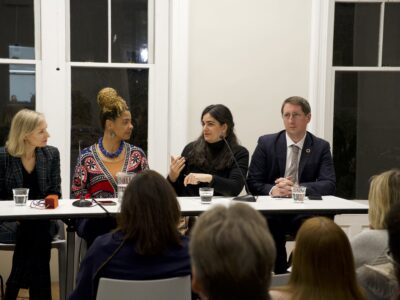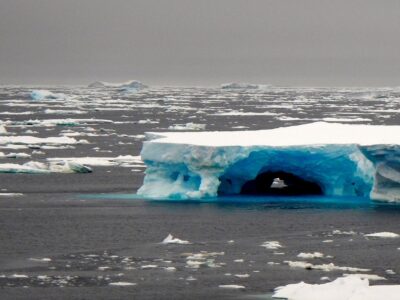
Conservation efforts have long been focused on preserving species and natural environments around the world, exemplified by campaigns to save iconic creatures such as whales, elephants and tigers, and preserve majestic areas such as Yellowstone, Yosemite and the Great Barrier Reef. But for many species, the changing climate is altering the equation for how best to do this. Plants and animals evolve, move away or die in the face of an altered habitat.
Now World Wildlife Fund will collaborate with the Earth Institute’s Center for Climate Systems Research to incorporate climate change information into conservation efforts.

World Wildlife Fund President and CEO Carter Roberts, and Jeffrey Sachs, director of The Earth Institute at Columbia University, signed a memorandum of understanding today for a new partnership to advance resilience to climate change named “ADVANCE”—Adaptation for Development and Conservation. The signing took place in Paris, where hundreds of world leaders have come together at the global climate change negotiations.
The goal of this new collaboration is to advance adaptation to the impacts of climate change around the globe. The partners will create new ways of generating climate risk information and embedding it into the World Wildlife Fund’s conservation and development planning, policies and practice.
ADVANCE envisions a future where the world is using co-generated climate risk information based on the best available science to guide conservation, development and disaster risk reduction in order to benefit both people and nature.
The Center for Climate Systems Research scientists and World Wildlife Fund experts are working together with local stakeholders to create and test a new approach to “co-generate” climate information for initiatives in Africa, Asia and Latin America. ADVANCE has already begun work in Myanmar, and upcoming pilot projects have been identified in Colombia, Bhutan and Tanzania. Learning from these early projects will catalyze future work and help inform policy guidance for partner institutions.

No region on Earth has been untouched by climate change and its cascading impacts. Even with a successful climate agreement in Paris, the climate will continue to change for centuries. The impacts will continue to affect people and their livelihoods, sensitive ecosystems and endangered species across the globe. This is why climate scientists and conservationists need to urgently work together to provide solutions to enhance resilience.
“The world needs big ideas that can move at the speed and scale necessary to make a difference. I love this partnership; it brings together extraordinary institutions to help the world adopt, adapt, implement and learn,” said Roberts. “ADVANCE aims to incubate, and identify, models that matter.”
“The ADVANCE partnership with the World Wildlife Fund is a wonderful program to help communities around the world to adapt to climate change with best practices based on rigorous science and active collaboration of scientists and affected communities,” said Sachs. “The climate scientists at the Center for Climate Systems Research have a vast experience in working with stakeholders to provide them with the very best climate risk information. From Asia’s high mountains to Myanmar and upcoming pilot projects in Colombia, Bhutan and Tanzania, the World Wildlife Fund and Columbia’s Earth Institute are already working to advance conservation and development.”

To learn more about the partnership, contact Shaun Martin at shaun.martin@wwfus.org or Cynthia Rosenzweig at crr2@columbia.edu.
For more information about the World Wildlife fund, visit www.worldwildlife.org and follow the organization’s news conversations on Twitter @WWFnews.
For more information on the Center for Climate Systems Research, visit www.ccsr.columbia.edu.





PROTECT THE TIGERS